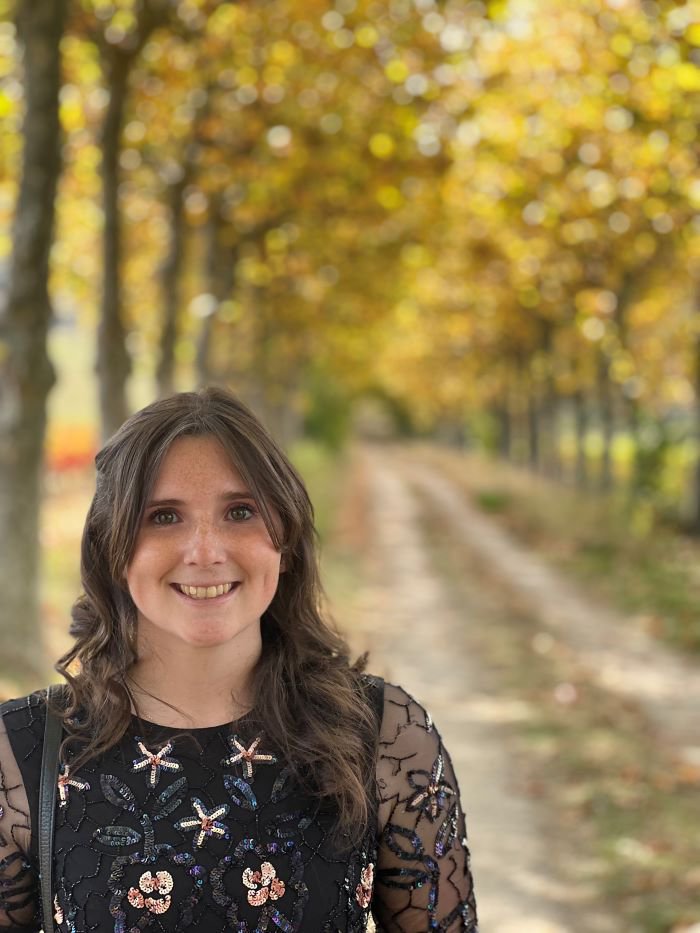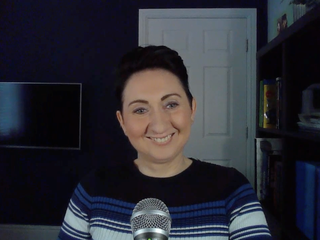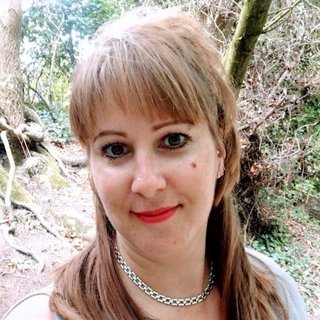No one talks about how hard it is when treatment ends
Finishing treatment and going into remission can bring mixed emotions. Natalia talks about the challenges she experienced, and how life in remission wasn’t what she was expecting.

I truly believe that my journey with cancer was harder post treatment than it was during treatment.
I think the hardest thing is at the point of diagnosis, you enter a world of treatment. And you live in it for however long, for me it was 6 months, and then you’re kicked out of that world. Only the world you come back to is different to how you expected it to be. It can be really hard adjusting to that.
I wish I had known from other patients to not expect remission to be easy. I want to be honest about the reality of my remission so that others know it’s okay not to be okay. It’s okay not to slot back into society. It’s okay to not be living your best life right now. And it’s okay if this lasts for some time. Being prepared for this will hopefully help you to be more kind to yourself if you do find yourself struggling.
Blood cancer doesn’t leave you the day that your treatment ends, but you’ll find ways to manage the impacts it may have.
After diagnosis, I was bombarded with a load of information. I had to make life decisions within days and amidst all the hospital stays and treatment, I lost my sense of self. I was temporarily taken over by a system. I faced mortality, I had my physical appearance change beyond recognition and as a result, my identity changed too. It feels like I was expected to easily transition back to a normal life when my treatment finished. But after such a life-changing experience, you can’t always fit back into your ‘normal’, or go back to being the same personas before.
Accepting how blood cancer changed my life
I used to compare my life to what it was before treatment. That was painful. I couldn’t acknowledge that the life I knew had been so irrevocably changed. Over time, as my hair grew back and I started to look more like my old self, I started to accept myself more, with all the changes that cancer had brought to this new version of me.
I come from a very academic background, and I assumed my life would follow this route. But after blood cancer, I couldn’t conceive the idea of following the path I always thought I would. I had changed, and the way I saw my future and what I wanted from life had changed.
I asked myself, surely the cancer has taught me something? And I realised I wanted to live my life differently going forwards.
I really struggled at first to carve out a meaningful path after blood cancer. At first, my future looked so uncertain to me, but I soon realised this mindset wasn’t helpful. Instead, I took action and after having worked hard throughout my university years, I’m in a career that I find purposeful, where I can use my experience of blood cancer to help other people. I work hours that suit me better and have a well-rounded life. I try to be grateful and to truly live my life rather than just exist, because I have known what it feels like to face the possibility of that life disappearing.
I know now that it's normal to find it hard to move on from what you went through. But it’s also possible to gradually build a new life that you find meaningful and fulfilling.
Everything I’d been through caught up with me
The day I was told I was in remission, I went and got a job. I tried to carry on as I had before the cancer and didn’t really give myself time to come to terms with what had happened.
I was thinking right, treatment done, off I go back to living life, but it didn’t work like that.
Months later, I realised I was struggling. So much of my identity was tied up with the blood cancer and it felt like the cancer hadn’t ended when the treatment finished. I was surprised at just how much I found myself relating my life to my experience with blood cancer and I found it difficult to process the trauma I had gone through and to find a way to move through it.
Having courage to ask for help
I was offered psychological support when I started chemotherapy, but I wished they’d offered it to me again at the end.
Whilst I was in treatment, I felt I didn’t need it. But, if they’d asked me when I had finished my treatment, I would have said yes to speaking to someone. Instead, I felt left to manage things on my own. Everyone thought and assumed life would go back to normal for me (including me!). It took 8 months of struggling for me to reach out to a nurse and ask for help. If you’re struggling too, don’t be afraid to ask for help, you have every right to receive the help that you need.
Find what works for you
I’m not the best at talking about how I feel. I’m good at talking about my experiences but I will often omit how I felt during them. I realised I was better at expressing how I felt through written words. I started a blog, and this became my safe space to process what I was going through.
After my treatment ended, I became incredibly anxious and any change to my body would trigger flashbacks to what had happened. The only thing that helped me was writing down how I felt at the time. The next day I’d read what I’d written, and I could see how illogical it was. That was my coping mechanism, but yours might be different.
Think about what would help you process your feelings and explore any ideas that come up.
I was fortunate enough to continue horse riding throughout my treatment, and I think that’s what saved my mental health. Riding a horse brought me into the present moment, away from everything that was worrying me, because I had to focus on the now because if I didn’t ride properly, I’d be on the floor! Hobbies are great at taking you out of what’s going on around you. They can be a total escape, so I really recommend finding something that is able to distract yourself from what’s going on inside your head.
Life can be scary, with cancer and without. The good thing is, there are far more important things than fear so have the courage to let life in again.

Support for the people around the patient
"There's nothing you can do. You can't look after yourself. You can't eat, you’re pacing." Hear Gail talk about how she felt when her husband was diagnosed with blood cancer.


